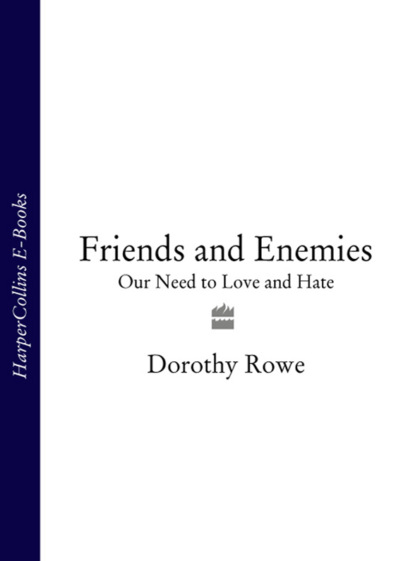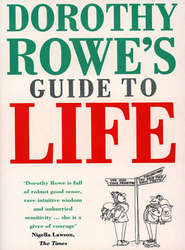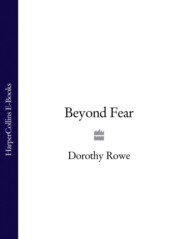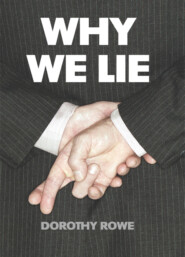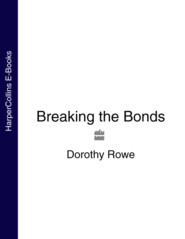По всем вопросам обращайтесь на: info@litportal.ru
(©) 2003-2024.
✖
Friends and Enemies: Our Need to Love and Hate
Автор
Год написания книги
2018
Настройки чтения
Размер шрифта
Высота строк
Поля
• ‘Enemies are those who do not allow you to progress, to develop in your own way, but try to impose their own beliefs and opinions.’
• ‘An enemy is somebody who doesn’t give me respect or trust or openness, who has different values from me and expects me to conform to theirs, who makes life uncomfortable for me by their actions and words.’
• ‘I have loads of enemies. There’s family, people who have rigid lifestyles and who dictate to everyone. At work there’s the people who vie for power with me, and elsewhere, in politics.’
• ‘Looking carefully into my life I am aware that I have had, and probably still have, enemies, although I have a fantasy that I haven’t. An enemy is someone who wishes bad things for me and who, it seems, no amount of love or understanding will influence otherwise.’
• ‘I believe we need enemies to shift rage from family and community to outsiders or causes. Also it gives an illusion of superiority by condemning their beliefs.’
• ‘An enemy is a traitor. One who betrayed me. One who had let me down. Rejected me. An unaccepting, narrow-minded person who had not been willing to listen and who sees the truth only from their own view point. Probably envies me and therefore wishes to destroy me.’
• ‘As a child I had enemies – other children who bullied me at school and on the way home from school.’
• ‘An enemy is someone who is totally without morals. A traitor. Someone who thinks only of self-gain and themselves. Someone who has let me down.’
When I asked four-year-old Alice if she had any enemies she immediately identified the problem of how we can hate the people we love. She said, ‘Sometimes Miles is an enemy. With Christopher and Jake. Most of the time when they come to tea he doesn’t let me into his bedroom. He just wants to play with his friends.’
I asked her how that made her feel. She said, ‘A bit upset. I cry, because sometimes I am trying to get though his door and he slams it shut and I fall down the steps.’
Miles, as I discovered when he told me about his enemies, had encountered the Sex War, though he had not yet recognized it as such. He told me that most of his enemies were girls. There were those who, he said, are ‘always telling on you, and telling the teachers, “Miss, Miles did this, Miles did that.”’ Megan was the chief of his accusers, but she did much more. He said, ‘She makes me feel really bad. I say, “Look, Megan, I don’t want you playing with me because I can’t play with you all the time. I’ve got other friends.” And if I said, “I’m not your friend,” she’d go off crying. She’d go all red-faced and make me feel really bad. I just can’t leave her alone. And then when I approach her, she runs off.’
Yet at other times Megan would distract him from his work by talking to him. I suggested to Miles that Megan really liked him and did things to annoy him just to get his attention. Miles dismissed this entirely, so I let the subject drop. Time enough for him to discover that sexual attraction is not always mutual and that many miseries arise from that.
Lesley knew these miseries and others only too well. She also knew how important it is to recognize an enemy. She wrote,
An enemy is not only someone who wishes to hurt you personally but has the power, or is perceived as having the power, to do so. In the case of enemies within the family this creates difficulties, because, although a person may to all intents and purposes be your enemy, they in effect have a cloaking device. That is, because they are supposed to love you, you can fail to see them as an enemy and take action to protect yourself. Taking that a step further, you may very well fail to perceive that their words or actions are in fact a result of their malice and projections, and locate the fault in yourself. Unfortunately, this puts you in the usually unrecognized position of being your own enemy. You join the other side and fight against yourself.
If you are brought up to believe that hating or doing harm to others, even wishing it, is wrong you are left very vulnerable to enemies. You bury your own hate, and either cannot see, or feel unable to defend yourself against enemies, people who wish to harm you personally, or who wish to take something that is yours, or you see as vital to your survival.
At a time of great personal stress, a woman moved in on my marriage. I remember being sat on the rug with my two small children when she came to my home to collect my husband for a business meeting and making it as clear as day that she was after my husband by the way she behaved towards him. I didn’t feel threatened because I was still locked into the belief that marriage was for ever, but I was appalled by her lack of manners and general demeanour. I can smile in a kind way now at my innocence and naïveté. Things got worse and she was the person my husband moved on to. She would probably argue that it was nothing personal and she might refute the idea of being my enemy. But I saw her as an enemy because she was competition for the resources I needed for my children, personal as much as financial. Now my children have grown up the enmity I felt for her is fading. As the threat she poses diminishes my feelings are moving to the point where she has no importance.
Lesley’s last words echoed those of Irene when I asked her about enemies. She said, ‘I don’t think much about enemies at all. I think an enemy would be someone I disliked or hated, and again that belongs to youth. It doesn’t belong to this age.’
Of course, opportunities for making enemies abound while we are still involved in competitive work. A university professor, not English, spoke to me of his colleagues and said, ‘They smile at me and have a drink with me, and then they’ll go into committee and turn down all my applications for research money.’
When I asked Anthony if he had any enemies he said, ‘Not that I know of. There’s nobody that I could say that I couldn’t see their point of view. I don’t have enemies in the sense that they would like to hurt me or mine. I could be easily hurt, or offended, but no, I don’t have enemies as such. I don’t have friends and I don’t have enemies.’
Yet, as I discovered when he took me to Drumcree, where the Orange Order supporters manned the country lane, protesting their right to march down the Garvaghy Road through the Catholic estate in Portadown, Anthony, in his kindness, had taken me somewhere where, if it were known that he was a Catholic, he would have been in considerable physical danger.
Those of us who live in peaceful countries can still have enemies – friends who betray you. Judy told me about her enemies – a business partner who had stolen from her and some friends who had formed a clique and excluded her, and what she had done to them. She said, ‘My way of dealing with people who’ve been rotten to me is to pretend they’re dead. I feel angry for a long time and then I get to a stage where, when their names come up, I can say, “Who?” It takes about two years. We forget about them, people who’ve done really rotten things to us. Then they’re dead. They’ve gone over to the dark side.’
Sometimes Judy’s revenge was even greater. She said, ‘I have my own revenge. I put curses on them. I beam my energy out.’
I think Judy was so kind she did not beam her energy very far. None of the politicians she hated have dropped dead. But there is a certain satisfaction in hurling a curse, even if it is only at a television screen.
Enemies can certainly play an important part in our life but I had not thought of them as being useful until I met a Serbian Jungian analyst in Belgrade. I asked him whether he had any enemies. ‘Internal or external?’ he queried.
‘Both.’
‘I don’t think I can talk about my internal enemies where I am an enemy to myself. That’s where external enemies are necessary. They see you more clearly than you see yourself. They stop you from having too high an opinion of yourself.’
I would have called such a group of people ‘critics’ rather than ‘enemies’ but I did not think this was simply a confusion of terms. He spoke excellent English, so if he said ‘enemy” he meant ‘enemy”. But only a Jungian analyst would have beneficent enemies.
I asked him if he had any political enemies. ‘Of course,’ he said. ‘Americans.’
I wonder if many Americans realize how big a part they play on the world stage as the universal enemy. But that is one of the dilemmas of friendship. The more powerful you are the fewer friends you are likely to have.
I am sure that many Americans would be greatly hurt to know that millions of people beam great amounts of enmity at them and take no account of how many Americans – though not always the American government – have tried to help impoverished people and, however ineptly, to secure world peace. Fortunately, not all foreigners do this. When I was in Vietnam in 1997 I discovered that the Vietnamese discriminated carefully between the American government that inflicted the most dreadful war on the Vietnamese and the Cambodians, and Americans generally, whom the Vietnamese saw as friends or potential friends. Such subtle discriminations require a subtle mind, which is lacking in those people who want to divide the world into two groups, friends and enemies.
Yet friends and enemies are rarely discrete categories. Friends can easily become enemies. In Northern Ireland I met Martin at a Sinn Fein Advice Centre in Fermanagh. He had recently been released from Long Kesh jail, where he had been serving an eight-year term. We got on to the subject of education and he told me how, in many places in Northern Ireland, Catholic and Protestant children would attend the same primary school. His best friend at primary school was William, a lad from a Protestant family. He said, ‘We played football together, we went fishing together, we did everything boys do together. In our last year in primary school, when I was eleven, I was one of six boys who passed the eleven-plus exam to go to the Christian Brothers School. William went to the local Protestant high school. The next time I saw him it was on a street in Castlederg. He was in an Ulster Defence Regiment uniform. He stopped me and made me get out of my car. He knew who I was but he didn’t let on that he knew. He asked me my name, then he searched me and he searched my car.’ Not long afterwards Martin became a volunteer in the IRA.
Sometimes friends become enemies because the groups to which individuals belong demand that it be so. Sometimes individuals themselves decide to change from friend to enemy. Sometimes it is hard to know who is your friend and who your enemy. Mark Twain once observed that ‘It takes your enemy and your friend, working together, to hurt you to the heart: the one to slander you and the other to get the news to you.’
(#litres_trial_promo)
Irene spoke of the spite which can lurk in the heart of a friend. She said, ‘Spite is one of the things I dislike, probably because I have a spiteful reaction inside myself sometimes and I find it horrible. There’s that desire to hurt. I think envy’s different. You can envy someone for having a terrific relationship you’d like to have, or having freedom from financial worries. I think that’s fine because it doesn’t mean you want to do them down or make them feel unhappy. Whereas spite has a real sting. To take them down, make them feel unhappy with themselves and what they’ve got.’
When we act out of spite and enmity we want to hurt other people and know that they are hurt, yet at the same time we do not want to know how the hurt feels to them. We have to refrain from empathizing with them. Empathy can bring us close to other people, but it can cause us much pain and that sense of helplessness when we know what another person is feeling and we can do nothing to ease that person’s pain. A mother told me how upset she was by the way her teenage son’s friends were also his enemies. They hurt him and they got him into trouble, but he still trailed after them, entranced by what he saw as their style and glamour, and proud to call them his friends. Friends can indeed be enemies.
When I asked my workshop participants to list what they saw as the dangers of friendship they had no difficulty in doing so. Here are some of the dangers they described:
• ‘The fear of the loss of the friend through death or separation.’ (Someone pointed out that people will commiserate with you when a relative dies but not when a friend dies.)
• ‘It means trusting someone with very sensitive parts of myself, so I am vulnerable and can be hurt. If I become dependent on that friendship that person might let me down.’
• ‘They can tell you things when they’re in difficulty and you want to make it all right and you can’t.’
• ‘Being taken for granted is an abuse of a friendship.’
• ‘There are dangers in becoming too familiar or involved in a situation in their lives, as with their spouse. It’s important to remain neutral in aspects of other relationships in their lives.’
• ‘You have to trust them and sometimes this trust is broken. They may gossip and not keep a confidence – or you may let them down in some way.’
• ‘To be a true friend you have to expose yourself, and this means you always risk being rejected.’
The pain of losing a friend was often mentioned as one of the dangers of friendship, but for Andrew Sullivan the death of a friend meant something more. He wrote, ‘It is only, perhaps, when you absorb the notion that someone is truly your equal, truly interchangeable with you, that the death of another makes mortality real. It is as if only in the death of a friend that a true reckoning with mortality is ever fully made, before it is too late.’
(#litres_trial_promo)
Andrew Sullivan was writing about the death of a friend from Aids and describing how ‘homosexuals, by default as much as anything else, have managed to sustain a society of friendship that is, for the most part, unequalled by any other part of society.’
(#litres_trial_promo)
This is a major claim to make, though he did acknowledge that heterosexual women could sustain friendships if their familial responsibilities have not overwhelmed them. Heterosexual men have suffered ‘great spiritual and emotional impoverishment’ because ‘the fear of male intimacy, which is intrinsically connected to the fear of homosexuality, has too often denied straight men the bonds they need to sustain themselves through life’s difficulties. When they socialize they often demand the chaperone of sports or work to avoid the appearance of being gay.’
(#litres_trial_promo)
Tim Lott’s novel White City Blue concerns four men who call themselves close friends but whose friendships fail through lack of intimacy. Fear of homosexuality is certainly present in their relationships, but so is intense competition. In an article accompanying the publication of his novel Tim Lott commented on how women, unlike men, will talk to one another at length on the phone and even make conversation in a public washroom:





